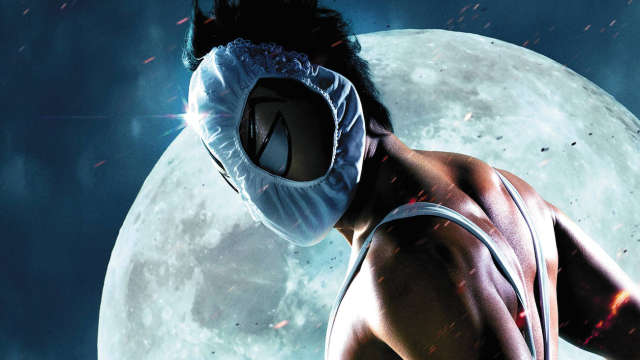“Hentai is brilliant,” reads the title of a recent Guardian article about a British game show contestant who won a round with the word “hentai.” But what does “hentai” actually mean, and how has that meaning changed? Let’s dive into the word’s etymology!
This article first ran on Kotaku Australia on July 16, 2020. It has been republished as one of our curated weekend reads.
The Oxford Dictionary defines “hentai” as “A subgenre of the Japanese genres of manga and anime, characterised by overtly sexualised characters and sexually explicit images and plots.” The origin of the word in English is given as “1990s Japanese, literally ‘abnormal, perverted.’”
The first Japanese character (変) in the word hentai (変態) literally means “strange” or “curious” (変), while the second kanji character (態) means “state” or “condition.”
[referenced url=”https://www.kotaku.com.au/2019/07/countdown-contestant-wins-challenge-with-hentai/” thumb=”https://www.kotaku.com.au/wp-content/uploads/sites/3/2019/07/countdown-hentai-1.jpg” title=”Countdown Contestant Wins Challenge With ‘Hentai’” excerpt=”There’s got to be a grim sort of mental arithmetic you have to do when you’re faced with a very short time limit and a decision as to whether you’re going to bust out ‘hentai’ as an answer on an otherwise quite wholesome game show.”]
Today in Japanese, the word does refer to people who are perverted or abnormal (as noted by the character Hentai Kamen, above), but that isn’t the only definition. Hentai also means “metamorphosis,” as in the complete changes insects make into their adult form.
As Kotobank notes, before that, during the 18th century for example, hentai was also used to note when the condition of things, such as the moon, for example, looked different.
During the early 20th century, the term hentai seiyoku (変態性欲) or “sexual perversion” was coined with seiyoku (性欲) meaning “sexual desire.” However, hentai seiyoku was shortened simply to “hentai” in colloquial speech due to Japanese speakers’ preference to shorten long words.
The term hentai then began to take on a new, sexual meaning. One early example dates from 1931 when the modernist writer Riichi Yokomitsu used “hentai” in relation to collecting a woman’s personal artifacts.
This definition continues. In contemporary Japanese, as website Takashionary explains, saying that someone has a “hentai hobby” (変態な趣味 or hentaina shumi) means that the interest is sexual in nature and abnormal.
The word hentai, it seems, also became the basis of the Japanese slang ecchi (エッチ), which is the Japanese pronunciation of the letter “H.” However, during the Meiji Period (1868-1912), the slang term ecchi apparently referred to the “h” in the world “husband.”
However, in the decades that followed, it appears ecchi began to refer to the “h” in “hentai.” The term ecchi came into wider colloquial use by the mid-1950s, and by the 1980s, the slang “ecchi suru” (to have sex) was in use.
Writer and game translator Matt Alt points to a thread by Yoshihiro Watanabe, a producer at Studio Orange. Watanabe explains that the term “hentai” isn’t used in Japan to refer to a specific anime or manga genre.
In current Japanese definition we do not use hentai to depict specific anime, manga, or game but refer to perversion in general. Sex is not hentai but abnormal sex is. Stripping is not hentai but streaking is.
— Yoshihiro Watanabe (@crazynabe) July 9, 2019
The word hentai is also used in a more complimentary meaning, as referring to a mania. As myself, when I’m extremely excited by a great animation acting or a amazing drawing (sexual or non sexual) a normal person may refer to me as a hentai.
— Yoshihiro Watanabe (@crazynabe) July 9, 2019
In academic report of a butterfly, the transformation is called hentai (in the definition of transformation) but my mind will have that moment of whispering “hentai butterfly”
— Yoshihiro Watanabe (@crazynabe) July 9, 2019
There is hentai gentleman, which various theories exists on what terms makes a pervert a gentleman, but yeah that contradiction brings space for imagination.
— Yoshihiro Watanabe (@crazynabe) July 9, 2019
Interestingly Kafka’s metamorphosis is known as the title “Henshin” in Japan but the word itself is accurately shapeshifting and not metamorphosis. As mentioned before hentai is metamorphosis.
— Yoshihiro Watanabe (@crazynabe) July 9, 2019
Freeza’s ultimate form
goes through ultimate hentai.…I can probably can go on like this for the whole night.
— Yoshihiro Watanabe (@crazynabe) July 9, 2019
It’s no doubt for the best that Kafka’s book is called Henshin (変身) in Japanese and not Hentai (変態). Though, I can’t say the same about Freeza’s ultimate hentai…

Leave a Reply